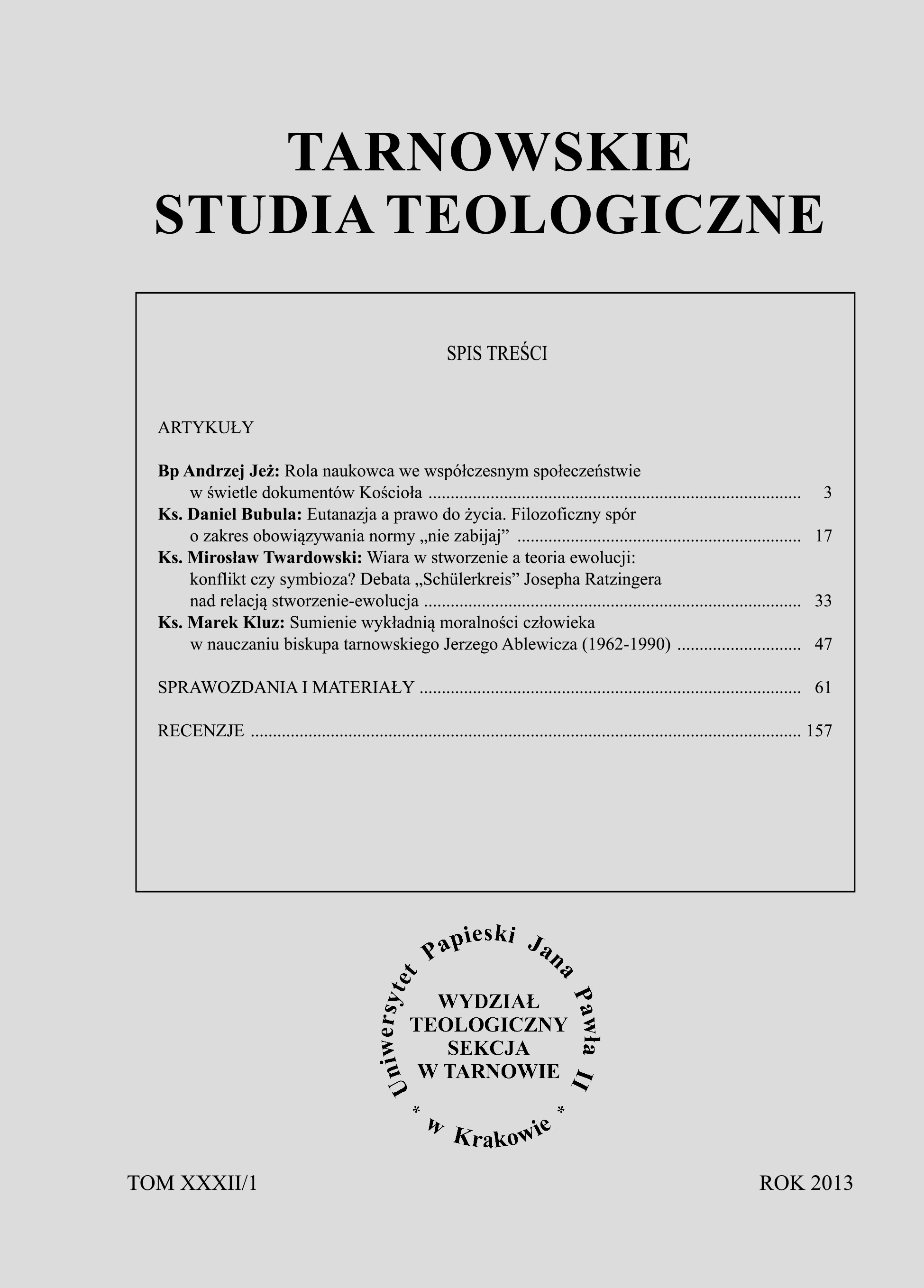Sumienie wykładnią moralności człowieka w nauczaniu biskupa tarnowskiego Jerzego Ablewicza (1962-1990)
DOI:
https://doi.org/10.15633/tts.303Słowa kluczowe:
sumienie, człowiek, rozwój, arcybiskup Jerzy Ablewicz, moralność, formacjaAbstrakt
Archbishop Jerzy Ablewicz seeking grounds for moral teaching, focused on the man, as a moral entity. Expression of human subjectivity is moral conscience. Through carrying out its functions, it is on top of the elements that constitute the dignity of every person. Conscience is a necessary condition for man to act as a human right. Pastor of the Church in the ministry of the word Tarnów reminded frequently about the Church's teaching on human conscience. Therefore, the aim of this publication is on-closer to his teaching on conscience as the interpretation of human morality. According to the Archbishop of conscience plays an important role in human moral development. It is legitimate and authoritative standard rule of conduct. However, conscience can determine the right way forward and shape the moral life of man must be well-formed. Ablewicz indicating the measures to this end, seek to shape the conscience of such a man to be able to act in a spirit of responsibility for themselves, others and the world, that is, ultimately, to do good moral.Pobrania
Opublikowane
2013-09-09
Numer
Dział
Artykuły
Licencja
Prawa autorskie (c) 2013 Marek Kluz

Utwór dostępny jest na licencji Creative Commons Uznanie autorstwa 4.0 Międzynarodowe.
Autorzy publikujący w czasopiśmie udzielają jego wydawcy zgody o następującej treści:
- Autor zachowuje autorskie prawa majątkowe do utworu, a jednocześnie udziela wydawcy czasopisma zgody na jego pierwszą publikację w wersji drukowanej i wersji online na licencji Creative Commons Uznanie autorstwa 4.0 Międzynarodowe oraz zgody na wykonywanie opracowań, w tym przekładów.
- Autor ma możliwość udzielania zgody niewyłącznej na opublikowanie utworu w wersji, która ukazała się w czasopiśmie (np. zamieszczenia go w repozytorium instytucjonalnym lub opublikowania w książce), wraz z informacją o jego pierwszej publikacji w czasopiśmie.
- Autor może umieścić swój utwór online (np. w repozytorium instytucjonalnym lub na swojej stronie internetowej) jeszcze przed zgłoszeniem utworu do czasopisma.

